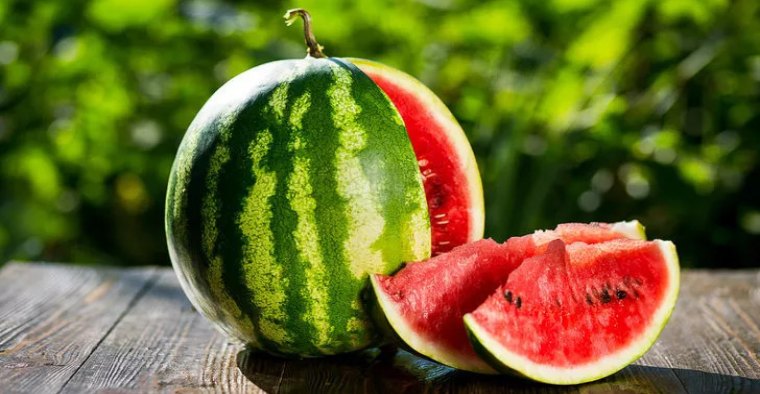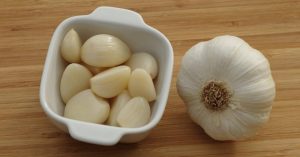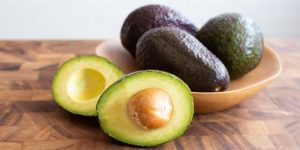Watermelon may trigger headaches in some migraine patients! This is according to a 2021 study conducted with 5098 headache patients in Brazil.
In this article, we’ll investigate the findings of this study and try to understand the mechanism by which watermelon induces headaches in some migraine patients.
Watermelon and Headaches
Watermelon is one of the quintessential fruits of summer. In addition to its refreshing effect and sweet taste, the fruit provides the body with several important nutrients and antioxidants.
While it is highly nutritious and thirst-quenching, watermelon is also linked to headaches.
A recent study with 5098 headache patients found that watermelon — among all plant foods — was by far the most common headache trigger in migraine patients.
It is important to note that, in the same study, participants with tension-type of headaches didn’t report headaches related to watermelon consumption.
It appears that eating watermelon can induce headaches only in migraine patients.
So if you are prone to migraine headaches, you may want to pay attention to your symptoms after eating nutrient-dense watermelon.
The Study: Watermelon May Cause Migraine Headaches
In this section, we’ll examine the study in which watermelon was found to be the most common headache trigger among all plant foods.
The Details
- The study was published online in Postgraduate Medicine (a peer-reviewed journal) on 18 June 2021.
- It was carried out by a Brazilian research team consisting of neurologists and nutrition experts.
- The aim was to identify the headache-inducing plant foods in headache patients.
- The researchers interviewed a total of 5098 patients with primary headaches; 3935 of them with migraine and 1163 with tension-type headaches.
- Participants were asked to report plant foods that triggered headaches at least once in their lifetime. Also, they were asked to indicate the time it took for headache pain to occur after the consumption.
The Results
1584 participants with migraine headaches cited 22 different plant foods as headache triggers. That means 40.3% of the participants with migraine reported at least one type of plant food.
Watermelon was by far the most common headache trigger. 1138 out of 3956 participants with migraine cited watermelon as a headache trigger. This corresponds to 29.5% of all participants with migraine-type headaches.
9 most common headache (food) triggers cited by the participants are as follows:
- Watermelon (29.5%)
- Passion fruit (3.73%)
- Orange (2.01%)
- Pineapple (1.52%)
- Grape (0.51%)
- Banana (0.46%)
- Cucumber (0.43%)
- Acerola (0.25%)
- Papaya (0.25%)
Note that no participants with a tension-type headache reported a (plant) food trigger!
The researchers concluded that many plant foods, especially watermelon, may trigger headaches in some migraine patients within minutes.
How Might Watermelon Trigger Headaches?
According to the study authors, the reason watermelon triggers migraine in some people might be related to the fruit’s citrulline content, which is an amino acid. The body converts citrulline to arginine, which is a precursor to nitric oxide that is known to relax and widen blood vessels. It is believed that nitric oxide may cause migraine headaches in some people by widening meningeal blood vessels in the brain.
Foods and Headaches
Since watermelons are known for their health benefits, learning that they may trigger headaches can come as a great surprise.
In fact, many foods that we consider healthy such as avocados, tomatoes, bananas, cheese, garlic, oranges and almonds were reported to induce headaches in some people. So watermelon is not the only healthy food associated with headaches.
The relationship between headaches and foods have investigated in several studies, and many headache specialists recognise foods as potential headache triggers, especially for migraine patients {1, 2, 3, 4, 5, 6}.
However, researchers don’t know the exact mechanism by which certain foods lead to headaches. They seem to believe that foods can trigger headaches in several different ways, such as by impacting blood vessel dilation or the brain’s sugar metabolization {7, 8, 9}.
The Bottom Line
The American Migraine Foundation notes that migraine patients should try to identify their personal food triggers and then limit the consumption of these foods.
In the study that we examined in this article, watermelon was found to be the most common headache trigger. If you consistently get headaches after eating watermelon, then watermelon might be a headache trigger in you.
Please note that unmanaged migraines can lower the quality of life significantly and lead to certain health problems. Therefore, always work with your doctor if you suffer from migraines.
As for the potential food triggers, you may want to consider working with a dietitian who became an expert in designing individualised migraine diets.




